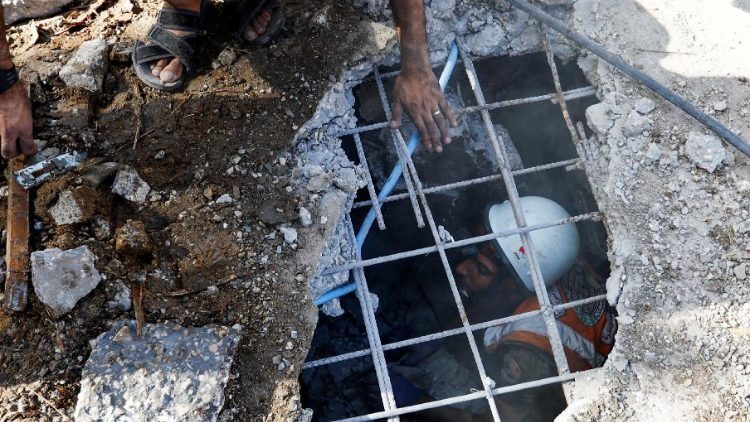“We just want to end this war as soon as possible. We want to continue our lives.”
Those were the words of Rami – who does not want to give his second name for security reasons – in an interview with Vatican News’ correspondent in Jerusalem, Valérie Feron.
As planes flew overhead and explosions could be heard in the background, he spoke about daily life in the Gaza strip, his hopes for an end to the conflict, and Christian-Muslim unity in times of war.
Caught in the crossfire
Although his family is in an area which has been declared “safe” by the Israeli military, Rami says, it recently came under bombardment, with shells hitting “all the houses and empty land around us.”
“It’s very hard for us to withstand the fighting and bombing which is happening around us all day, 24/7”, Rami says.
“Of course, we want to move,” he says, “but where to? The road is not safe, anyone who moves with any vehicle can get hit anytime. We don’t know what to do. We just want to stay alive.”
Everyday necessities
Procuring enough food and water for his family, moreover, is becoming an increasing challenge for Rami.
He says that his family has some wheat, and “limited” gas, which is about to run out. Because of this, they “don’t do any cooking at all. We only bake bread.”
Water, too, is in short supply – the family has a well, but that, too, requires electricity to run, and so drains their swiftly-dwindling gas supplies.
Recently, Rami has resorted to buying drinking water from the Khan Younis area, but that too, he says, is not unlimited, and is already going for “double the regular price.”
United in suffering
“Muslims and Christians are in the same boat,” Rami stresses. “We all suffer the same impact of the war on us.”
“We have our children, we have our daughters, boys, our wives, our fathers and mothers,” he says. “We are the same. Whether you are a Muslim or a Christian, it doesn’t matter at all.”
“We just want to end this war as soon as possible,” Rami concludes. “We want to get our homes back. We want to continue our lives.”






